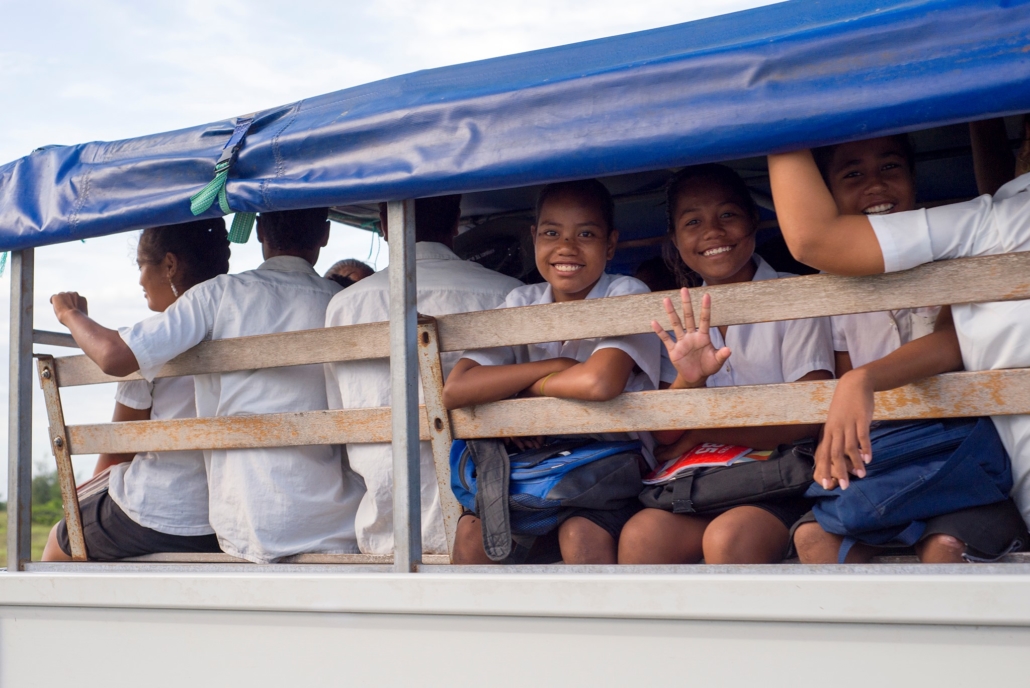Foreign Aid to Battle Poverty in Kiribati

In the central Pacific Ocean there lies several small islands, an independent country, called Kiribati. In all of Oceania, it is the poorest country, however, that does not suggest that it is the weakest one. Poverty in Kiribati is prevalent because copra farmers suffer from low incomes and weak infrastructure due to the country’s remote location away from international waters. As a result, it lacks the necessary resources to thrive. Kiribati’s economy is dependent on the export of phosphate rock as well as seaweed and copra farming, and its location on the Equator makes it the ideal place for spacecraft and satellite facilities. With these intriguing assets, there are possibilities to improve both employment and infrastructure. In spite of creating new infrastructure and more employment, the island nation continues to rely on foreign aid for development funds.
Rising Sea Levels
With much of the population of Kiribati being low-income farmers, and the government providing their travel resources, the nation has been seeking help to fight against sea-level rise. About 28.6% of the Gross Domestic Product (GDP) of Kiribati is due to agriculture. As a result, aid is necessary to protect its land so that agriculture can thrive.
The islands of the archipelago are only six feet above sea level with a width of only a few hundred meters, making them vulnerable to rising sea levels. Poverty in Kiribati will exponentially increase if the sea drowns out the farmlands, neutralizing the country’s main source of income. Natural disasters will strike and with the destruction of structures, the country may have to use up the little resources it has to rebuild.
Solutions
Taneti Maamau, the president of Kiribati, intends to raise the islands out of the water to increase the safety of his people. The country will seek foreign aid from China as well as other allies and will elevate the islands through the process of dredging. This is known as cleaning the bed of an area of water by scooping out mud and trash with devices.
Kiribati is developing long-term coastal security with help from New Zealand and is also planning to create elevated bridge roads with funding from China. With these roads, Kiribati will no longer need to use causeways that create beach erosion with the landfill between the islands. This is not universally agreed on because Kiribati has become the center stage for the U.S.’s and China’s competition for control of the Pacific. The U.S. has expressed implications that China will use this opportunity to build military facilities on its large islands. The Kiribati president has assured everyone that there are no plans for this, but Kiribati is vulnerable due to its reliance on foreign aid for 40% of its budget.
Aid from Fiji
The growing sea levels may consume Kiribati, and a neighboring island nation has offered to help. The president of Fiji has stated that the people of Kiribati are welcome to stay in Fiji if their home becomes uninhabitable. There is only so much that people can do in the case of environmental challenges and with Kiribati’s limited resources, seeking aid from a nearby country is a viable option. Kiribati purchased 6,000 acres of land from one of Fiji’s largest islands so that it would be set for food as the ocean covers its cultivable lands. The Kiribati people will not be the only ones seeking asylum as the Banaban people from one of the islands of Kiribati had no other choice but to relocate to Fiji after it was no longer safe to continue phosphate mining.
Foreign aid is partly dealing with poverty in Kiribati. Neither cobra farming nor the mining of phosphate rock provides a high income so Kiribati has received aid from China to help solve its rising sea-level debacle. Meanwhile, Fiji has offered to give the people of Kiribati a new home in the event that their lands become inarable and mining is no longer possible due to flooding. With foreign aid from China to lift Kiribati out of the water and an offer for a new home, Kiribati is in good hands.
– Shalman Ahmed
Photo: Flickr
